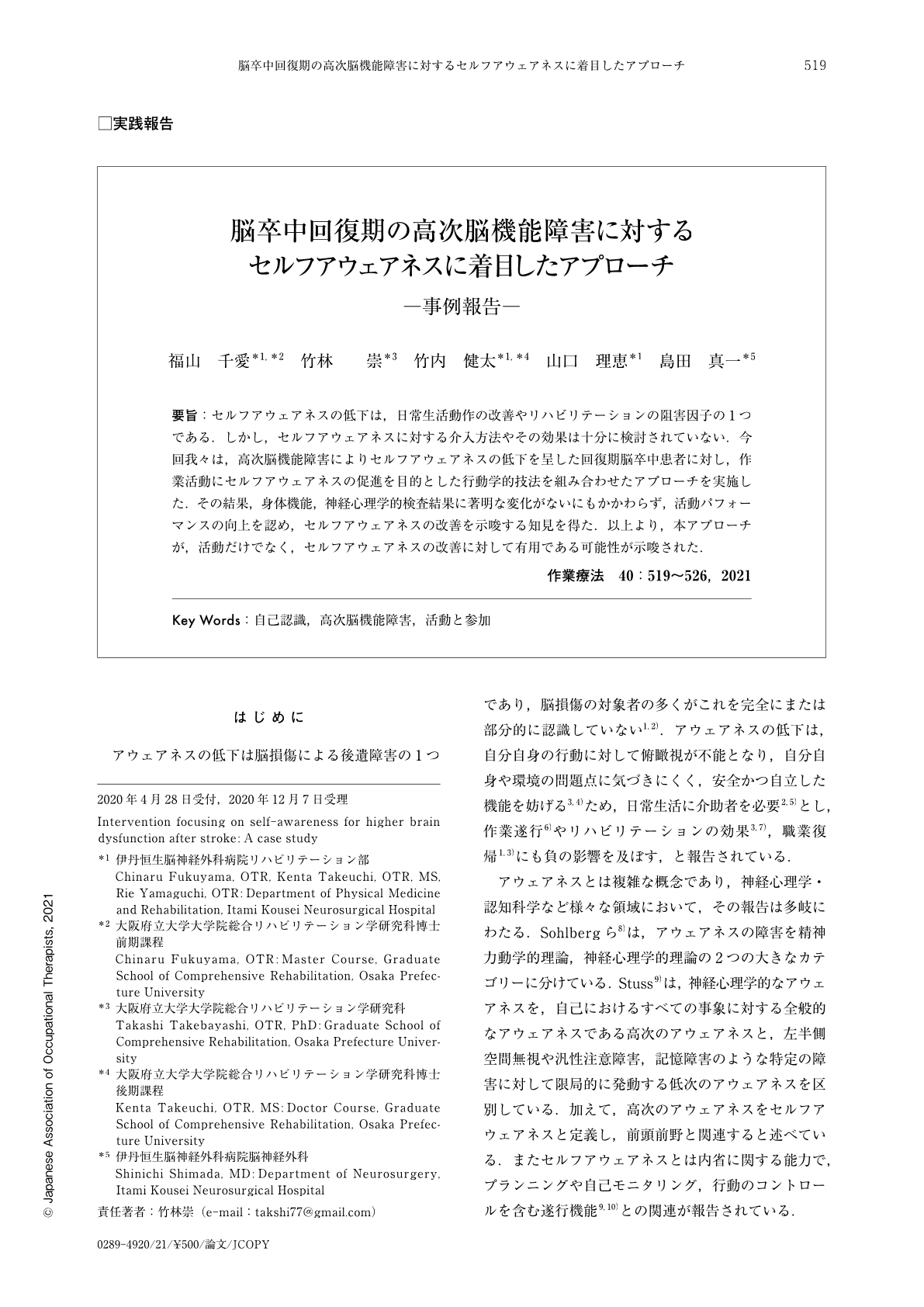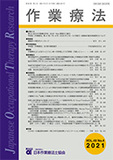Japanese
English
- 販売していません
- Abstract 文献概要
- 1ページ目 Look Inside
- 参考文献 Reference
要旨:セルフアウェアネスの低下は,日常生活動作の改善やリハビリテーションの阻害因子の1つである.しかし,セルフアウェアネスに対する介入方法やその効果は十分に検討されていない.今回我々は,高次脳機能障害によりセルフアウェアネスの低下を呈した回復期脳卒中患者に対し,作業活動にセルフアウェアネスの促進を目的とした行動学的技法を組み合わせたアプローチを実施した.その結果,身体機能,神経心理学的検査結果に著明な変化がないにもかかわらず,活動パフォーマンスの向上を認め,セルフアウェアネスの改善を示唆する知見を得た.以上より,本アプローチが,活動だけでなく,セルフアウェアネスの改善に対して有用である可能性が示唆された.
Previous studies have demonstrated that impaired self-awareness after acquired brain injury can result in limitations in activities of daily living and rehabilitation. However, the effectiveness of intervention for impaired self-awareness is uncertain. We provided task practice using behavioral strategy training to improve self-awareness for a subacute stroke patient with higher brain dysfunction. We found that she exhibited a significant improvement in self-awareness and performance on activity, although there was no significant change in physical functions and neuropsychological assessments. These findings suggest that this intervention for a subacute stroke patient with higher brain dysfunction may be useful for improving self-awareness as well as performance on activity.

Copyright © 2021, Japanese Association of Occupational Therapists. All rights reserved.


